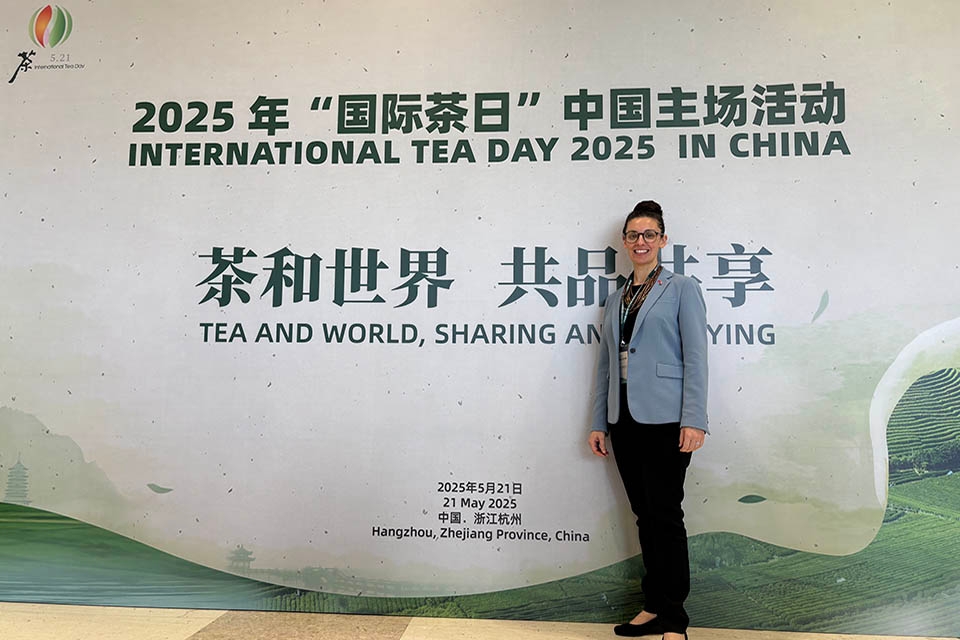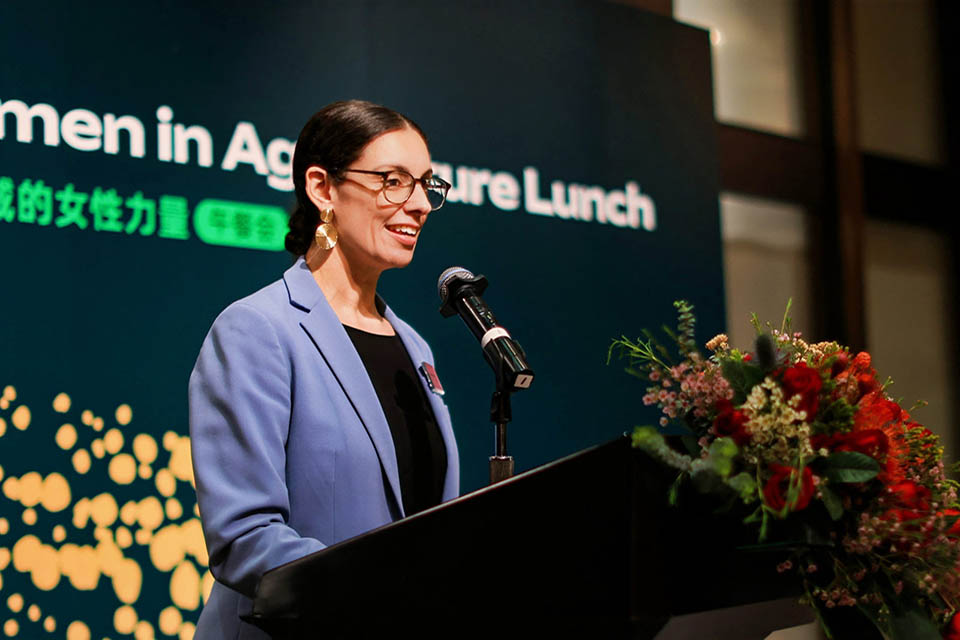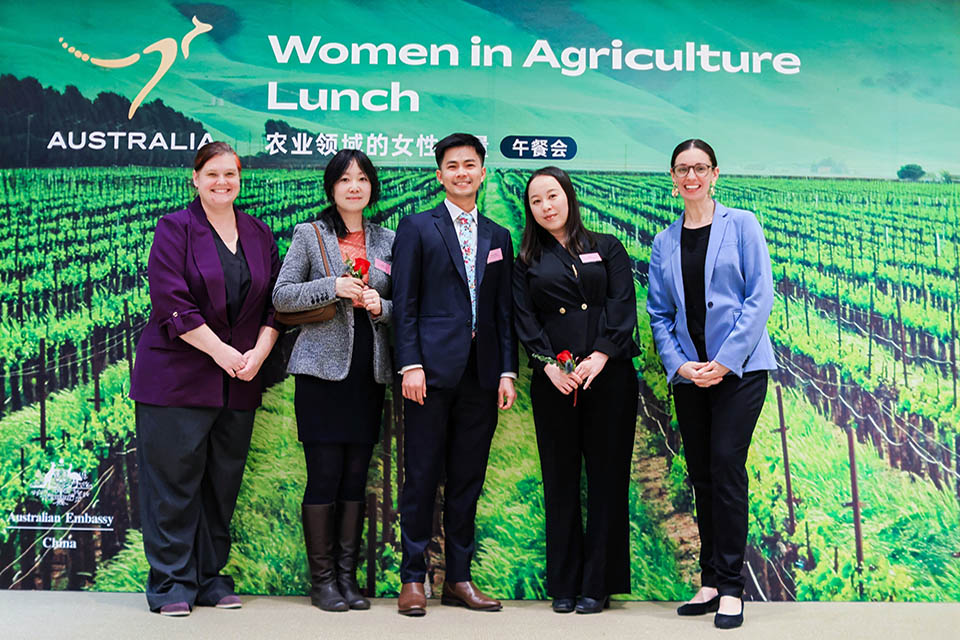Tariffs and non-tariff barriers are on the rise. Traders must adapt to new sustainability and climate-based trade rules.
Global trade flows are also shifting, with many traditional export markets constrained by new tariffs. Not only do countries need Plan B in terms of diversification but also Plans C and D to stay competitive.
Aussie agriculture a cut above
Despite the challenges, Australian agriculture continues to stand out.
‘Quite frankly, we are good at what we do,’ says Nadia Bouhafs, Minister-Counsellor (Agriculture) in Beijing at the Department of Agriculture, Fisheries and Forestry (DAFF).
‘Australia has a reputation as a trusted and reliable supplier of a range of agricultural and food products that continue to feed an expanding market of millions around the world.’
Safe, sound and scrumptious
Food safety is the cornerstone of Australia’s agricultural brand.
Export markets have strict regulations to protect public health. Australian exporters must meet exacting standards to gain access.
‘Australia has a rigorous, well-developed food safety system that regulates the production, processing and handling of exported products for human consumption,’ Bouhafs says.
Teamwork makes the dream work
DAFF plays several unique roles supporting agricultural exports, including negotiating technical market access and working to address non-tariff barriers. The department supports Australia’s agriculture industries to remain competitive and sustainable.
Many markets require government-to-government negotiation. DAFF helps businesses navigate these challenges through its global network of agricultural counsellors.
‘As an agricultural trade regulator, we use international standards and science-based risk assessments to develop and inform policy,’ says Bouhafs.
Not a one-trick pony
DAFF is also actively involved in and leading global discussions around standards on food safety, biosecurity, Maximum Residue Limits (MRLs) and more.
Its legislative frameworks and tools help manage exotic pests, disease and other risks to human health. It can provide grants, investment or financial assistance for exporters looking to expand their markets.
‘Globally we’re extremely connected and known for our expertise and willingness to collaborate,’ Bouhafs says.
Aussie agriculture trusted in China
In China, Australia has an excellent track record when it comes to food safety. This makes the country a consistently strong option for Aussie exporters.
‘Consumers in China know our products and trust the processes we use to verify safety,’ says Bouhafs.
‘Commercially, Australia also has a reputation for honouring contracts, which reinforces our reputation as a reliable trade partner.’
Drought, dust and determination
Agility is another hallmark of Australian agriculture. From cutting-edge technology to market-specific products, the sector adapts quickly to changing conditions.
‘Despite farming in one of the world’s driest and most variable climates, our industries have embraced innovation to continually improve yields while reducing water use and soil impacts,’ says Bouhafs.
‘We’re farming some of the oldest soils on the planet, and yet our industries consistently find new ways to adapt.’
The winning combo
In today’s market, Australia’s reputation for quality, safety and reliability is more valuable than ever.
‘Australia is known as an innovator,’ Bouhafs says. ‘We develop products and technology to help ensure we are providing reliable, consistent produce tailored to meet market needs.’
Through DAFF and other industry partners, Australia continues to be one of the world’s most trusted and respected agricultural brands.



Images courtesy of Department of Agriculture, Fisheries and Forestry.
Images left to right: Chinese Ministry of Agriculture International Day of Tea event in Hangzhou, May 2025; Nadia Bouhafs presenting at the Women in Agriculture event March 2025 held at the Australian Embassy in Beijing; The Agriculture team at the Australian Embassy in Beijing - including Laura McGrath (far left), Agriculture Counsellor (DAFF) for the Women in Agriculture event, March 2025.